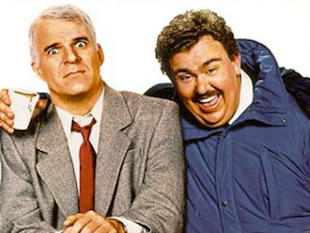 The Sideshow
The SideshowHow to keep strangers from sitting next to you: a study

A new study offers some helpful hints on navigating our "culture of social isolation in public places," better known as, how to keep people from sitting next to you on the plane, bus or train.
Yale University's Esther Kim spent three years traveling thousands of miles across U.S. bus systems to compile her observations.
"I became what's known as an experienced traveler and I jotted down many of the different methods people use to avoid sitting next to someone else," Kim told Science Daily. "We engage in all sorts of behavior to avoid others, pretending to be busy, checking phones, rummaging through bags, looking past people or falling asleep. Sometimes we even don a 'don't bother me face' or what's known as the 'hate stare'."
Some of the tips for avoiding your fellow travelers are dictated by physical postures, such as avoiding eye contact, staring out the window with a blank stare or simply pretending to be asleep. While others are more overtly antisocial, like placing your bag on the empty seat next to you, listening to your iPod, or even lying and saying the seat next to has already been taken.
Kim describes what is the nearly universally understood but rarely spoken truth: a game of chess played by passengers, in which they strategically situate themselves in ways to both maximize comfort and minimize the odds of traveling next to a stranger. And when a flight or bus trip is full, the priorities radically shift to simply avoiding sitting next to someone "weird."
Interestingly, Kim also found that class, gender and race did not play significant roles in where people choose to sit.
"Motivating this nonsocial behavior is the fact that one's own comfort level is the rider's key concern, rather than the backgrounds of fellow passengers," she said.
Though some critical discrimination does still play a role with certain riders.
"One rider told me the objective is just 'getting through the ride', and that I should avoid fat people who may sweat more and so may be more likely to smell," Kim said.

